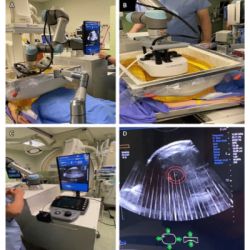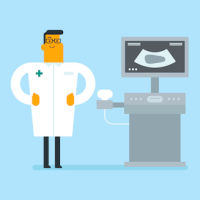Executive Summary
Radiology plays an important role in patient screening, diagnosis, treatment guidance, monitoring and follow-up. The sad thing is that two-thirds of the world's population has no access to basic radiologic services. In the case of computer tomography (CT) for example, 14% of low-income countries have at least one CT equipment per million population (pmp) as compared to 100% in high-income countries.
While magnetic resonance imaging (MRI) provides excellent soft tissue contrast with high quality images, it is notable that access to MRI is limited due to its large footprint, high cost and complexity in operation. Given the challenges with access, medical imaging has been mainly used in diagnosis and its tremendous potential as a preventative tool in healthcare remains largely untapped.
You may also like: AI powers radiologists
An accessible MRI solution with deep data analytic capabilities, developed by PhenoMx Inc., a digital health company, provides the ability to peer into an individual’s body to evaluate health status, understand behavioural characteristics and predict disease risks. PhenoMx digital physical examination uses noninvasive MRI to measure the major vital organs and tissues from a Whole Body approach, for personalised health, wellness, and longevity.
The new system enables the use of MRI as a comprehensive screening tool, paving the way for affordable and actionable annual health exams, according to PhenoMx co-founders, Girish Srinivasan and Mark Punyanitya, who also serve as the company's Chief Technology Officer and Chief Executive Officer, respectively.
"With a mere 20 – 30 minute scan, a detailed fingerprint of the body’s structure, composition and function in health and disease can be determined," the company execs explain. "Tracking, monitoring and evaluation of the tissue distribution with respect to an individual's own baseline or a demographic population can provide insights into metabolic anomalies, which can serve as a biomarker for diseases such as obesity, diabetes, cachexia, etc."
Today AI-based solutions, particularly deep learning techniques, have permeated the entire field of medical image analysis. Srinivasan and Punyanitya say digitisation allows for utilisation of automated processing and analysis techniques including AI to transform the data into meaningful results. For imaging data, AI-based processing and analysis yields simplified workflows, definitive diagnosis as well as predictivediseasebiomarkers.
"Successful adoption of this solution at scale," the two execs note, "would provide an opportunity to test multiple hypotheses on biomarkers of health and disease, to facilitate paradigms of affordable and accessible, preventive and interceptive healthcare."
Sources: PhenoMx, Inc. Full article will be published 22 February 2019 in HealthManagement.org
Image credit: PhenoMx, Inc
References:
Latest Articles
CT, MRI, Radiology, Monitoring, Healthcare, CT scans, medical imaging, diagnosis, AI, imaging, workflows, deep learning, whole body MRI, imaging data, follow-up, Personalised Health, PhenoMx, patient screening, diagnosis tool, treatment guidance, predictive disease biomarkers, digital physical examination
An accessible MRI solution with deep data analytic capabilities, developed by PhenoMx Inc., a digital health company, provides the ability to peer into an individual’s body to evaluate health status, understand behavioural characteristics and predict dise



























